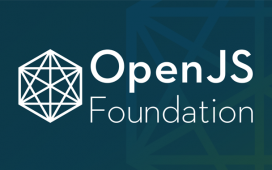BIG RAPIDS — With recent approval to begin construction on a new facility, Ferris State University will eventually have a new home for a variety of degree programs while helping the school to develop more dynamic and effective methods of online learning.
Last month, Ferris State University’s board of trustees approved moving forward with the construction of a $29.5 million main campus building called the Center for Virtual Learning (CVL). Vandercook Hall, a dormitory constructed in 1957, will be razed to make way for the technology-rich, cutting-edge building, which was designed by Stantec Inc.
The 64,000-square-foot Center for Virtual Learning will host the school’s nationally recognized Information Security and Intelligence degree program in addition to the School of Digital Media and the School of Education and eLearning. It will also feature facilities to host Ferris State’s eSports programs in addition to cybersecurity competitions.
The board of trustees’ approval was needed to complete the design, construction phase services, furniture procurement and other required professional services.
“One of the goals of the Ferris Forward (strategic plan) centers on offering innovative educational experiences that blend theory and practice,” said Bobby Fleischman, provost and vice president for academic affairs at Ferris State. “In looking at this, we understand the goal of the strategic plan will be achieved through improvement of academic programs and, in this case with the CVL, improving the facilities in which we deliver our academic programs.”
New Digs
The CVL will serve as a hub to develop and fine-tune methods of e-learning. Online learning has long been an important component to Ferris State’s educational offering, featuring 30 fully online programs.
The need for more effective online learning became more apparent throughout the COVID-19 pandemic, although Ferris State managed to stay open and teach 50 percent of its courses in person.
Underscoring the school’s commitment to advanced online learning, during the fall of 2020, Ferris State received a $669,216 federal grant to expand virtual-based STEM programming for rural high school students. The FerrisNow STEM Dual Enrollment Virtual Reality Initiative provides live, virtual reality STEM classes for high school students in 11 rural West Michigan counties, including every public school in Ferris State’s home of Mecosta County. The schools are equipped with end user sites, where they can connect with Ferris State and its faculty.
“(The CVL) also helps us serve future students that are in rural areas that do not necessarily have access to the technology. Our grant funding allows us to address new populations, diverse populations, rural populations and to prepare them for eventually becoming Ferris students with a clear pathway into our program,” Fleischman said.
Cybersecurity Home
Among its many uses, the Center for Virtual Learning will become the new home for Ferris State’s Information Security and Intelligence (ISI) program. Dr. Greg Gogolin, a professor in ISI at Ferris State, said the program, already regarded as one of the top in the country, will be able to stand out even more with some of the features of the new facility.
This includes a Faraday research lab in which external signals are blocked from entering. The CVL will make Ferris State home to the only lab of this nature in the state of Michigan and give students and faculty a new resource in which to conduct research.
“It gives us a room where we can research malware and other things,” Gogolin said. “We can put it on networks within that lab and work on transmitting malware to different devices without having to worry about it potentially jumping and getting an innocent bystander, if you will.”
These facilities will be the latest feather in the cap for Ferris State, which established the first cybersecurity program in Michigan and one of the first accredited programs in the nation. On top of that, Ferris State is one of only two cybersecurity programs accredited for online delivery.
In 2013, the school was the first university in the country designated as a Center of Digital Forensics Academic Excellence by the U.S. Department of Defense Cyber Crime Center and the Air Force Office of Special Investigations.
With the cybersecurity industry facing a desperate need for talent, Ferris State is helping Michigan residents to get first crack at filling those roles.
“It is a huge advantage for our Michigan kids interested in the cybersecurity field to have Ferris nearby,” said Susan Rhem-Westhoff, an instructor at the Muskegon Area Career Tech Center who focuses on teaching the network and security technology program.
“Having to travel out of state and pay out-of-state fees to attend college is cost prohibitive for most kids,” Rhem-Westhoff said. “Not only can they attend a college in their home state, but the Ferris cybersecurity program is NSA-approved and has top-drawer instructors.”
Additionally, Ferris State is just one major player in a growing ecosystem of cybersecurity and networking talent development.
“For my students interested in cybersecurity, it is a win-win. They can earn entry-level industry certifications with me at the MACTC, head to (Muskegon Community College) for a couple years and study network security there before heading to Ferris for their last two years, or go directly to Ferris,” Rhem-Westhoff said. “I have had kids do both.”
New A.I. Program
Along with moving forward with the CVL, board members also approved a new Bachelor of Science in Artificial Intelligence degree in the College of Business.
When unveiling the program, school officials stated they wanted to position the institution at the forefront of artificial intelligence degree-granting, where job growth has been 74 percent annually, ranking it first among the top 15 emerging jobs in the U.S., according to a LinkedIn report.
Primary areas of focus for the new artificial intelligence degree will be cybersecurity, the Internet of Things, health care, business and educational applications.
“Cybersecurity is something that it’s not a person or a team of people that can respond to things, it’s becoming where a lot of it has to be automated and that’s where the A.I. piece comes in,” Gogolin said. “That’s one of the areas of A.I. we’re going to focus on. There are several others, but that’s sort of the mesh between the two.”






